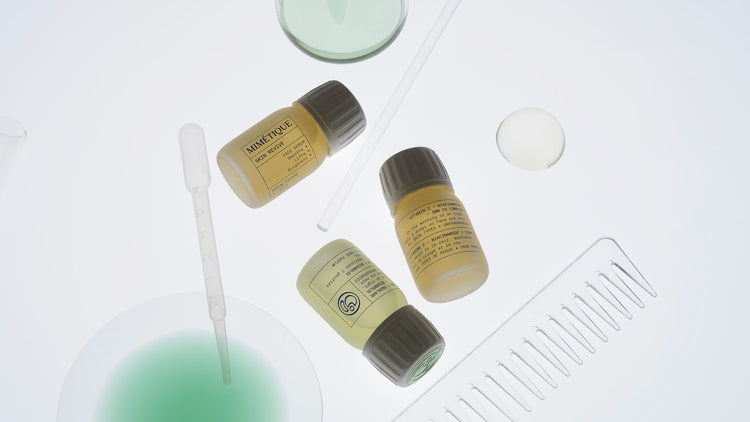What is an adaptogen?
Adaptogens are natural substances derived from the empirical knowledge associated with traditional medicines. They are specific herbs or fungi, all the more valuable because they are few in number. As their name suggests, they have the ability to help our bodies adapt ("adaptogens"). Adapt to what? To various stressors that can disrupt our body's equilibrium, the famous homeostasis. Because when a grain of sand gets into this well-oiled machine, the whole system seizes up—often with a cascade of disorders.
These "gifted" plants act in a non-specific way; that is to say, they possess a large number of physiological effects capable of supporting several bodily systems, on a case-by-case basis, with a response that varies from person to person. They could be compared to tiny coaches who will track your weaknesses to help you better compensate for them!
Adaptogens, best known for their use in diet and supplements, are also applied to the skin. As you might have guessed, the principle is the same: they help our skin regulate its response to external stressors, including those involved in the appearance of signs of aging. To put it simply, their cosmetic benefits can be summarized by their powerful antioxidant potential, but some also offer additional benefits (soothing, anti-redness, radiance-boosting, etc.).
A few adaptogenic plants to get you started
Chaga: it is regularly presented as the "mushroom of immortality" for its resistance to extreme climates (very cold!).
Reishi: it's one of the best-known and most powerful adaptogens. For the skin, it may help soothe irritation and minor unwanted redness.
The hedgehog mushroom: it's the mushroom of the brain and memory! It is also known as "lion's mane".
Shiitake: it is renowned for its properties on the immune system and the digestive balance of our body, in addition to being a source of vitamin D.
Ginseng: some varieties, in addition to their adaptogenic profile, are said to have a stimulating effect on sexual activity. This is because they have a wide range of hormonal actions.
Ginger: it's an adaptogenic plant, but also carminative: it's said to be ideal for minor digestive upsets. On the skin, it's an antioxidant and reduces redness.
Licorice root: less well known than the previous ones, it is sometimes considered an adaptogen because of its supposed action on cortisol secretion.
Maca: this root with a cocoa-like flavor is known to be invigorating and stimulating, particularly for libido.
Rhodiola, also known as "golden root," is now rarely used because it is endangered. Fortunately, as you can see, there are other options!
Schisandra: it is said to play a key role in energy metabolism, which is why it is recommended during periods of physical weakness.
Ashwagandha: probably the best-known adaptogenic mushroom, also reputed to promote sleep. Its active ingredients are said to be similar to steroids.
Astragalus: when incorporated into skincare, it helps to preserve skin tone by supporting the production of collagen and elastin.
How to incorporate adaptogens into your skincare routine?
With Djusie's Cucumber Slice eye cream : it contains chaga extract. Ideal if your eye area is creased with emerging fine lines. For even more adaptogens, complete your Djusie routine with Acid Bloom Balancing Essence (reishi extract) and The Juice Facial Hydrating Fluid (shiitake and lion's mane extracts).
Q+A's Ginger Root Face Cream : It contains ginger root. It's ideal if your skin shows signs of fatigue, such as a loss of radiance, sudden dehydration, or more pronounced wrinkles. And its sweet, spicy scent pleasantly warms our gloomy souls during autumn.
With Absolution's hydrating and thirst-quenching face mask: it contains astragalus. Leave it on for 10 minutes when your skin feels tight and rough to the touch. It will help you regain comfort, softness, and plumpness with minimal effort.
With RMS Beauty makeup: the SunCoverup tinted cream is one of the brand's signature products to incorporate its famous blend of adaptogens (an exclusive mix of herbs, including sarsaparilla, licorice, and ashwagandha). It evens out skin tone with sheer coverage and a protective, skincare-like formula that leaves skin soft and feeling firmer.







![[Actif star] La saison des adaptogènes est ouverte !](http://www.happyofficine.ch/cdn/shop/articles/actif-star-la-saison-des-adaptogenes-est-ouverte.jpg?v=1760062007&width=700)